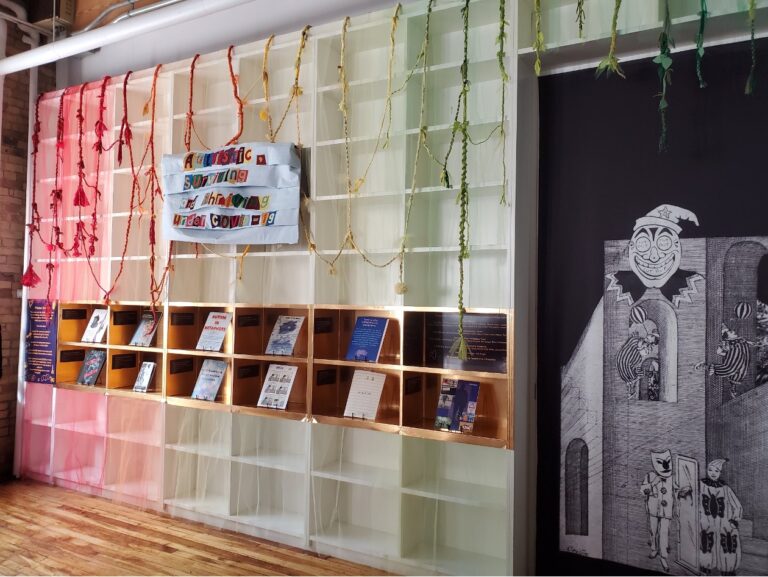This article takes up Mia Mingus’ call to “leave evidence” of how we have lived, loved, cared, and resisted under ableist neoliberalism and necropolitics during COVID-19 . We include images of artistic work from activist zines created online during the COVID-19 pandemic and led by the Re•Storying Autism Collective. The zines evidence lived experiences of crisis and heightening systemic and intersectional injustices, as well as resistance through activist art, crip community, crip knowledges, digital research creation, and the forging of collective hope for radically inclusive autistic futures—what zine maker Emily Gillespie calls “The neurodivergent, Mad, accessible, Basic Income Revolution.” We frame the images of artistic work with a coauthored description of the Collective’s dream to create neurodivergent art, do creative research, and work for disability justice under COVID-19. The zine project was a gesture of radical hope during crisis and a dream for future possibilities infused with crip knowledges that have always been here. We contend that activist digital artmaking is a powerful way to archive, theorize, feel, resist, co-produce, and crip knowledge, and a way to dream collectively that emerged through the crisis of COVID-19. This is a new, collective, affective, and aesthetic form of evidence and call for “forgetting” ableist capitalist colonialism and Enlightenment modes of subjectivity and knowledge production that target different bodies to exploit, debilitate, and/or eliminate, and to objectify and flatten what it means to be and become human and to thrive together.
Articles by Sherri Liska
Sherri Liska is a Toronto-based neurodiversity activist, carbohydrate enthusiast, and (most importantly) cat lady. She works as an independent, AuDHD neurodiversity consultant through www.freelydivergent.com. In her professional life, you can find her co-developing and advising on neurodiversity-friendly workshops, support spaces, accessibility policies, and approaches to education. In her personal life, you can find her comparing bakeries and chasing after foster cats who are trying to eat plastic. Sherri values and commits to a warm, non-judgmental, and collaborative approach in all of her work. As a peer supporter, she gently accompanies her autistic peers through the process of de-pathologizing their ways of being and towards feeling “at home” in their identities. In her one-on-one consultations with families, she employs her knowledge of autistic needs, mannerisms, history, and politics, as well as her own experiences as an “unseen” disabled person, to help non-autistic people better connect to their autistic loved ones.
